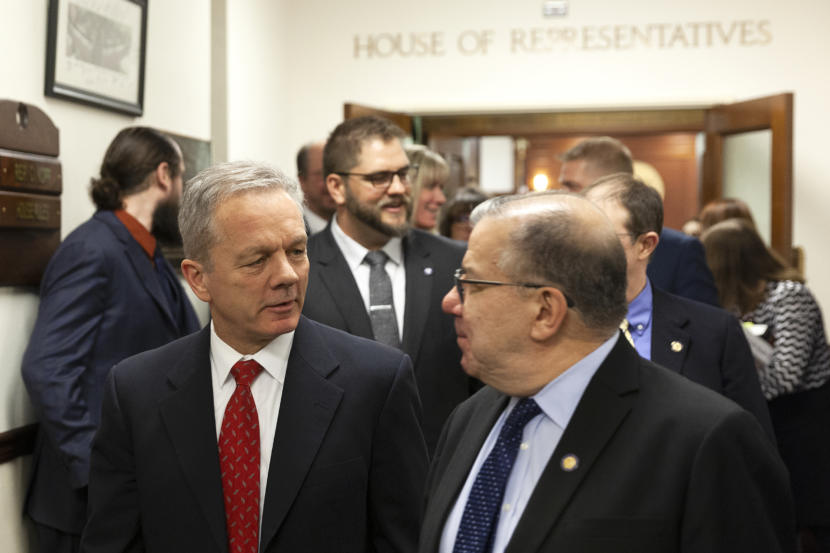
Ben Stevens, a former Alaska Senate president once linked to, but never charged, in the Veco corruption scandal, has died at age 63.
A Facebook post by a leading Anchorage Republican group attributed Stevens’ death to a heart attack and said he was hiking with his wife when he abruptly collapsed.
The Alaska State Troopers said Stevens was on Lost Lake Trail in the Chugach National Forest, outside of Seward, and died on Thursday evening despite CPR and a helicopter response by Lifemed.
Stevens, the son of former U.S. Sen. Ted Stevens, served as chief of staff to Gov. Mike Dunleavy before leaving that role in February 2021 for a job at ConocoPhillips Alaska.
The company’s president, Erec Isaacson, issued a statement saying that the company is “deeply saddened by the sudden passing of our friend and colleague, Ben Stevens.”
“Ben was a valued leader at ConocoPhillips Alaska and leaves a significant legacy in the state of Alaska. Ben will be deeply missed not only by his family and colleagues, but in the broader Alaska community,” the statement said.
Born in Washington, D.C., in 1959, Stevens attended high school in New York, earned a degree in economics from Arizona State, and received an MBA from George Washington University.
After graduation, he worked in the commercial fishing industry and managed a consulting firm before Gov. Tony Knowles appointed him to a vacant state Senate seat in 2001.
Stevens went on to serve as the Senate’s majority leader and as Senate president.
In 2006, Stevens was one of six state legislators whose offices were raided by the FBI in a sweeping bribery investigation, and Rick Smith, a former vice president for the oilfield services company Veco, testified that he had bribed Stevens.
Stevens was never charged with a crime in that investigation, or in a separate federal investigation that examined consulting fees he received from fishing companies that benefited from legislation supported by his father in Congress.
Stevens did not seek re-election in 2006 and went on to management roles in a series of transportation companies before briefly considering a 2018 run for governor. After he decided against that run, he joined the Dunleavy administration.
This story originally appeared in the Alaska Beacon and is republished here with permission.